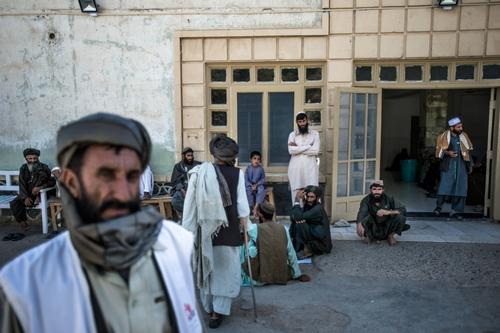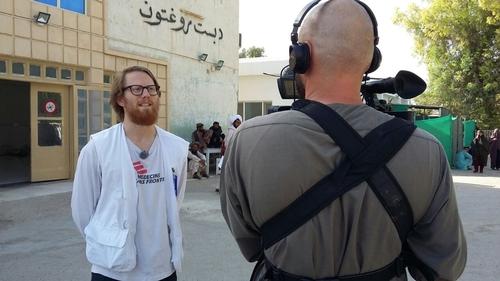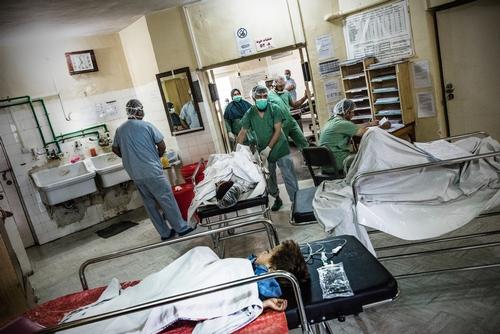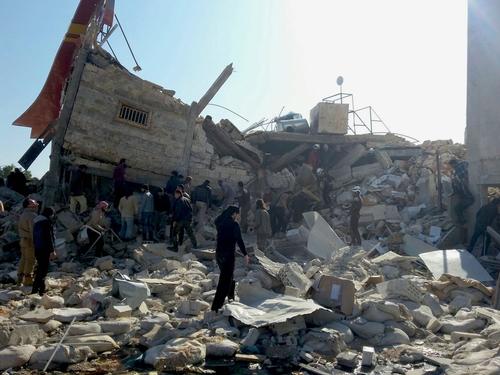The first few weeks of August saw heavy clashes between Afghan government forces and armed opposition groups in districts surrounding Lashkar Gah, the capital of Helmand province, but the intensity of fighting has decreased in recent days. Despite the relative calm, sick and wounded people are still struggling to reach the emergency room (ER) in Boost hospital, a 300-bed facility run by MSF in partnership with the Afghan Ministry of Health in Lashkar Gah.
“Our patients have reported that roads are blocked and checkpoints are delaying them reaching the hospital,” said MSF Country Representative, Guilhem Molinie. “As a result, we’ve seen a trend of quieter mornings in the ER, which are usually the busiest time, and more people are arriving in the evening after facing delays getting here.”
Overall, however, the number of patients arriving at the ER has decreased since fighting escalated at the beginning of August.
“The ER is the main entry point for patients to the hospital so the fluctuating admissions are a direct reflection of the ebb and flow of the conflict and people’s ability to reach the hospital,” said Molinie. “As the only hospital able to provide specialist healthcare free of charge, many patients have to come from far away to access life-saving care such as surgical interventions, and emergency obstetric and neonatal care.”
In other wards of the hospital, such as the Intensive Therapeutic Feeding Centre and paediatric departments, doctors are starting to see the situation slowly returning to the normally busy level.
Around Lahkar Gah
Fighting is ongoing in the districts of Nad Ali, Marja, Geremshir and Nawa, around Lahkar Gah, but the intensity has decreased. MSF is prepared with a multiple casualty plan in case of a sudden influx of wounded if fighting escalates again, medical materials have been stockpiled and triage protocols have been put in place.
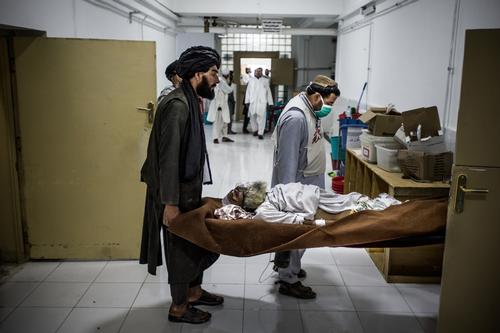
“Our ability to continue providing medical care in Lashkar Gah depends on all warring parties respecting medical staff, facilities and patients,” said Molinie. “We are in contact with all parties to the conflict, including Afghan government forces, international forces and the armed opposition to obtain these assurances”.
MSF has shared the coordinates and the information related to its facilities in Lashkar Gah with all parties to the conflict. MSF has a strict no weapons policy and all people entering its hospitals need to place their weapons in a safety locker.
“In order to protect our staff and patients we not only need people to know where we are located, but we also need their firm commitment to respect the fact that we work in a neutral and impartial way,” said Molinie. “We have to constantly reassess whether all parties fully accept us providing medical care to anyone who needs it, whether the fighting is in the neighbouring districts or reaches Lashkar Gah itself.”
MSF started working in Afghanistan in 1980. In our projects in Afghanistan, both national and international staff work together to ensure the best quality of treatment. MSF supports the Ministry of Health in Ahmad Shah Baba hospital in eastern Kabul, Dasht-e-Barchi maternity in western Kabul and Boost hospital in Lashkar Gah, Helmand province. In Khost, in the east of the country, MSF operates a maternity hospital. MSF plans to open a multidrug-resistant tuberculosis diagnosis and treatment facility in Kandahar later this year. MSF relies only on private funding for its work in Afghanistan and does not accept money from any government.



